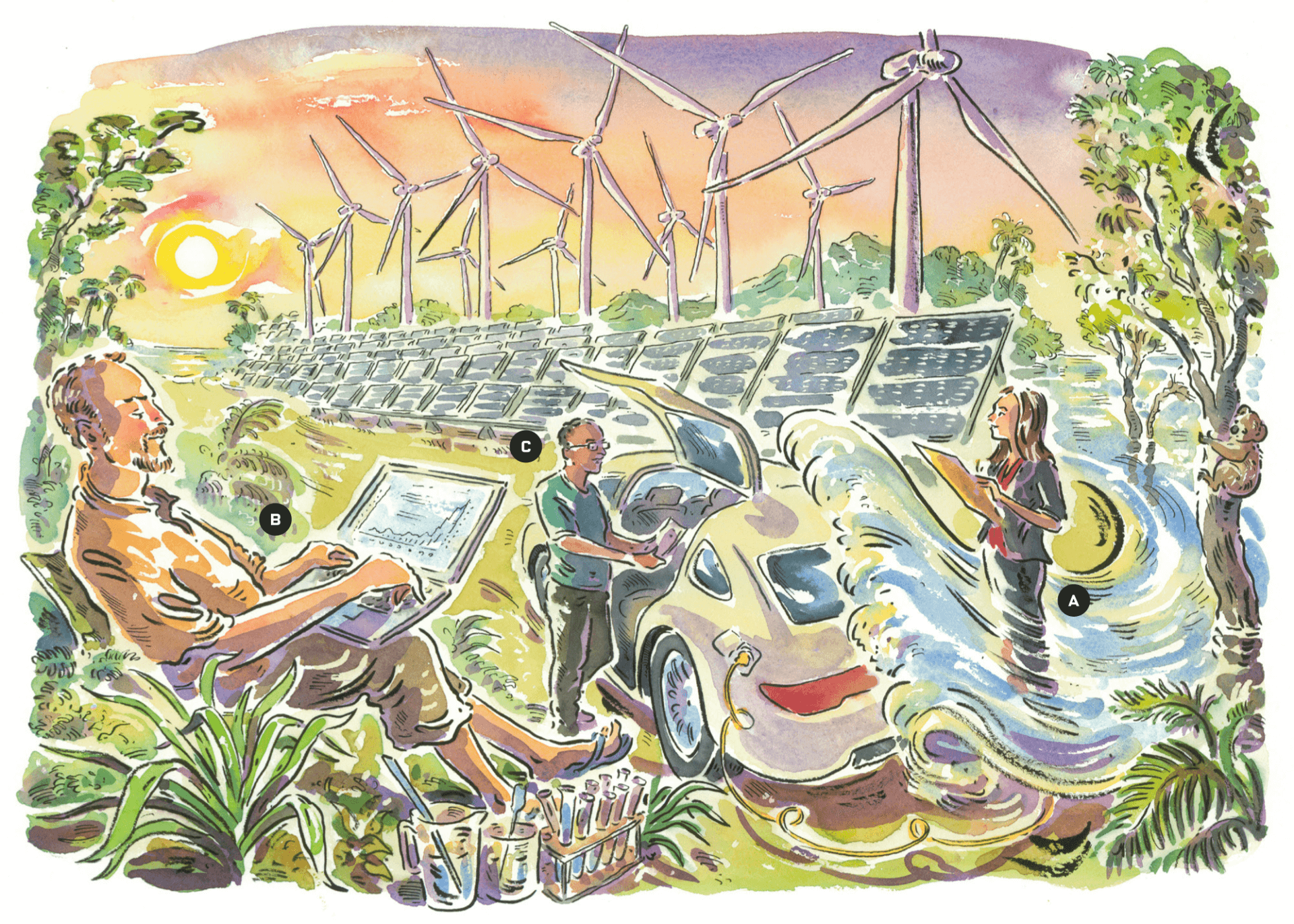Sustainability and Computation

This group is anchored by faculty in sustainability research that is heavily based on computational methods. The group also includes faculty who focus on sustainable approaches to computing itself. Meet some of the faculty active in this group below.
Associate Professor of Biological Sciences and Quantitative and Computational Biology
“The oceans play a critical role in making the Earth a habitable planet. Specifically, microscopic organisms in the oceans (marine microbes) play a key role in the global carbon cycle and thus climate. They produce approximately half of all oxygen and act to cycle a pool of carbon that is equivalent to all the CO2 in the atmosphere. My research focuses on understanding how shifts in climate impact microbial systems and to identify how microbial systems in turn impact climate (ecosystem-to-climate feedback loops).
To do this, we develop innovative, interdisciplinary numerical models that provide new insight into how dynamics occurring at the scale of individual microbes impact large-scale ecosystem processes, such as rates of global carbon cycling. This leverages computational representations of cells, ecosystems, and the oceans.”
She and her team have demonstrated that how individual bacteria interact with each other and organic matter they are degrading can play an important role in setting the transfer of carbon into the deep oceans. They also have shown that environmental fluctuations, driven by ocean physics, drive a trade-off between two evolutionary strategies that determine whether and how fast microbes can adapt to environmental change.
Professor of Earth Sciences
“Paleoclimatology, the study of past climate, uses archives like corals, tree-rings, ice cores, mud from the bottom of lakes or oceans, and cave deposits to reconstruct past climate states. This, in turn, informs the fundamental dynamics of Earth’s climate, and informs future predictions, partly through the validation of physics-based models and/or training of AI systems. Because the field is data-driven, work is very time-consuming unless there are efficient workflows that can extract information from these very hard-won datasets, often requiring years of work for a few dozen data points. Computing is therefore essential to this work.”
His lab creates software and workflows to analyze, visualize and synthesize paleoclimate datasets, and use them to constrain the workings of Earth’s climate.
He is most known for his work on the climate of the Common Era, and how El Niño-Southern Oscillation has varied in the past and what that means for its future.
Associate Professor of Computer Science
“As a society, we've turned to computing to solve all the important problems of modern life -- sustainability among them. And as computing's ecological footprint grows, it's not only that computing can help address problems in societal sustainability, but making computing itself sustainable is a major challenge.”
He has worked on computing for sustainability (using computing to help address problems in agriculture, land use, power grids, and more) and sustainable computing (making computing itself more sustainable) for 15 years.
Raghavan’s key accomplishments include:
- Performing the first comprehensive study of the total energy use of the Internet
- Developing key conceptual frameworks for sustainable computing research, and organizing a workshop on the subject now in its 10th year
- Developing computational agroecology, which is a new approach to computing-supported sustainable agriculture
- Developing new techniques, such as information batteries, to leverage computing to improve the use of sustainable energy on the grid


